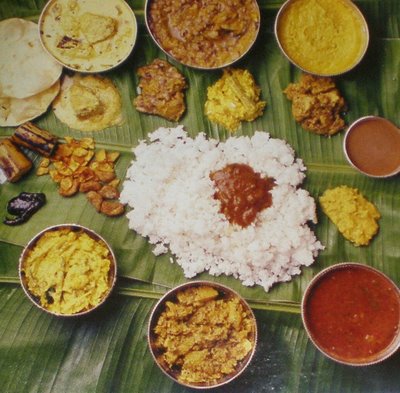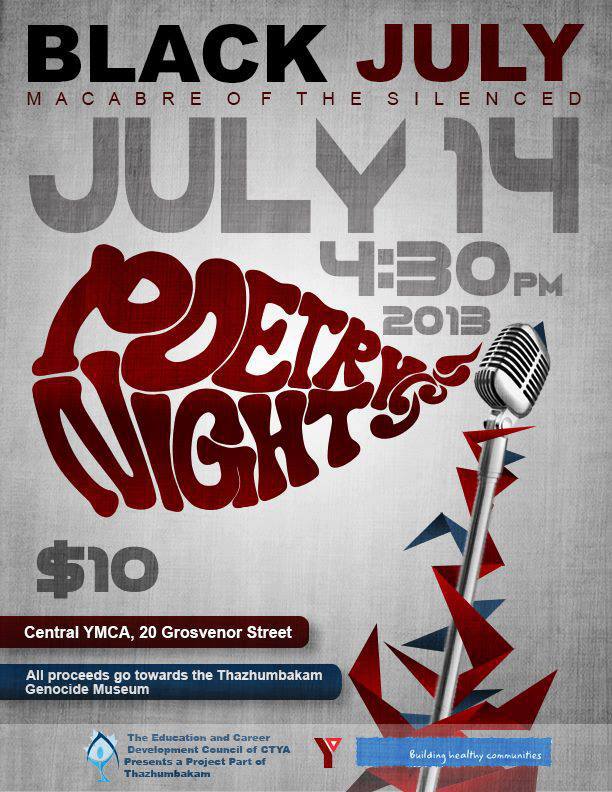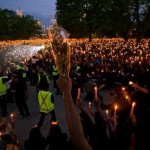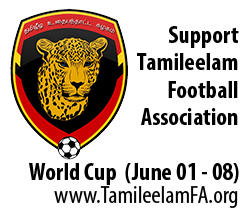Posts Tagged ‘Speak Out’
They call it “Maanam”By Admin - July 17th, 2013 |
 |
|
Written By: Keerthana Raveendran Spotless, glistening house? Check. Freshly prepared, delicious meal? Check. Overdressed house folk bearing charming grins and perfect posture? Check and check. Alright, then. Bring on the guests. Perhaps you’ve been in this position before. Perhaps this scenario is even far too familiar to you. If your family is anything like mine, preparing for visitors is very much like getting ready for an open house: you always, always put your best foot forward. It’s surprising the lengths Tamil people will go in order to impress family and friends, and while I’ve often pondered a derisive, ‘Why?’ as I lit incense to mask the strong aroma of the twelve different curries my mom and I spent five hours before guest arrival preparing, I think I’ve managed to boil it all down to one word, friends—and that word is: maanam. Maanam, loosely translated to dignity, is a key aspect of Tamil culture, and every detail of one’s life, from appearance and possessions to personality and career goals, is scrutinized by peers to determine one’s self-worth—or at least, that’s how it worked with our parents back home. Now, that’s pressure. After all, this increased emphasis on the importance of dignity in daily life means that we are constantly acting to present ourselves as images of perfection. Because if we pretend to be perfect around everyone we know, that must mean that we’re well-respected in society, right? What we often forget in situations like these is that we are indeed human. We are not perfect. Our houses don’t always look like Ikea showrooms. We don’t eat twelve different curries with idiyappam, puddu, and idli for dinner every night. And we definitely don’t always sit with perfect, rigid postures for long periods of time when we watch TV or carry small talk. It’s okay to be flawed and to embrace our misgivings. Maybe it’s even okay to redefine the idea of maanam as we know it. Because here’s a thought: if we stop feigning flawlessness in company, perhaps we’ll find that we’re more alike than we thought. |
Macabre of the SilencedBy Admin - July 10th, 2013 |
 |
|
What is Black July and what is the significance for Tamil people and the Tamil Diaspora? During the riots of July 24th to 29th 1983, hundreds of Tamil people lost their homes, their possessions, and their lives. The Tamil people in many areas within Sri Lanka were systematically targeted, tortured and murdered for merely for being of Tamil identity. It was blatantly clear of polarization that exists between the Sinhalese majority and Tamil minority. These attacks carried out against the Tamil population were witnessed by the Sri Lankan government who continued disregarded the evident polarization. The racial tension between the Sinhalese and Tamils started at the time of independence in 1948. One of the most significant moments whereby a clear distinction between the two groups of people was established was in the passing of the Sinhala Only Act in 1956. This made Sinhala the sole official language of Sri Lanka and consequently, it resulted in many Tamils protests against the legislation. With this act, the Sri Lankan government failed to recognize the language of the Tamil population. Through such government actions, the language, culture, and education, and overall identity of the Tamil population were in jeopardy and even peaceful Tamil protests were met with malevolence and rigidity from the Sri Lankan government. Another significant example of the attempt to rid Tamil cultural symbols includes the burning of the Jaffna library in 1981. During this incident, the government officials took part in the ethnic book burning of priceless manuscripts and documents that were central to Tamil culture and preservation of it. After the killing of 13 Sinhala soldiers, many angry Sinhalese mobs attacked Tamil populations all across the country, and even Tamil prisioners were murdered with iron rods and clubs. Curfews were set and raging Sinhalese mobs wandered the streets searching for Tamil people to humiliate, torture and murder. In fact, these mobs had voter registration lists which made helped to identify Tamil homes. Tamil people were slaughtered with axes, raped, and burned alive. In many instances, Sinhalese families hid Tamils in their homes to save their lives. This anti-Tamil pogam of 83 led to many to flee their homeland and take refuge in Western countries. The Black July atrocities fueled the fire for a bloody genocide that ended in 2009, and Tamils in Tamileelam are still denied basic human rights and left to pick up the pieces of their shattered homeland, family and culture. The hundreds of innocent lives massacred in these riots should never be in vain. We must keep the memories alive and preserve them like burning candles to remind of where we come from. We can never forget those who were forced to give up their lives nor will we forget how the future remains grim for those living in Tamileelam. These are the silenced voices, and we must bring light to the unbearable hardship and persecution they face everyday. As we are well aware, throughout the month of July, there are many events to be held in order for us to come together to reminisce . The Black July Poetry Night is one of those events presented by the Education and Career Development Council of CTYA. At this event, we kindly ask everyone to share your stories of struggle to break the silence. Raising your voices with poetry at the Macabre of the Silenced poetry night where artists and audience members unite to create the voices for those who have been silenced for over five decades will be a great way for us to reconnect and remember the horrific riots of Black July 1983. |
Struggles of Women in SportsBy Editor - June 10th, 2013 |
 |
|
Written By: Nevethan Balendra Only in the past half century have women become more socially accepted in the sporting world. In the 1800s and 1900s, they were restricted to being a part of small clubs that weren’t competitive and only recreational. |
The Tamil National Student Uprising Day, ‘Manavar Elichi Naal’By Editor - June 6th, 2013 |
 |
|
Written by: Mathusan Mahalingam The value of education is great, and for perpetrators of a systematic genocide, education of the targeted group is an attractive target. The obvious reason education has been targeted, and is targeted is that an educated class has power to fight back, and without this education, power centralizes around the perpetrators (Coloroso, 2007; Jones, 2006). The less Tamils who are in powerful positions, the less change they can initiate, and the harder it will be for them to replace organizers of genocides. |
‘Vali Sumantha Mann’ – ReviewBy Editor - May 31st, 2013 |
 |
|
Written By: Shayanika Suresh Every step and every expression reminded us of the plight of our people. The injuries, the deaths, the rapes…each and every one of them sickening us. |
In Remembrance and MemoryBy Editor - May 18th, 2013 |
 |
|
Written By: Mathusan Mahalingam Today marks the 4th year remembrance of May Massacre, the height of the genocidal onslaught on the Tamils carried out by the Sri-Lankan Government. Today, I think of the tens of thousands of innocent civilians bodies, I think of the tens of thousands of people who were displaced and forced into concentration-style camps, I think of the tens of thousands of children who were orphaned, and I think of the tens of thousands of people who were injured, and I think of the tens of thousands of girls who were raped. Years from now, when my children and their children learn about the events that happened in Mullivaykal in 2009, I want them to learn the truth. |
Bhoomi Enna Suthudhe Dance – WessTigga & PointDxterBy Editor - May 9th, 2013 |
 |
|
It wasn’t anything out of the ordinary, just a normal day of hanging out with buddies, which eventually took a turn. Releasing a video together had been a long awaited project that, due to time constraints, had been constantly pushed back. |
This Calls for A Boycott!By Editor - April 28th, 2013 |
 |
|
As the committee goes ahead and gives a thumbs up to this decision of approving Sri Lanka as the place for the 2013 CHOGM to be held, they are completely ignoring the values and principles previously agreed upon. It is some what hypocritical to grant credibility to a country who has corrupted the system developed by the Commonwealth, to be hosting their meetings itself in the future. In doing so, the committee tears apart and breaks the vows that they have promised to uphold. |
Tamil Youth Life – A Danish Tamil’s StoryBy Editor - April 27th, 2013 |
 |
|
Do you live in Canada and have ever wondered about life in UK? Do you live in the UK and wonder about in life in Australia? Do you live in Denmark and ever wonder about life Canada? Today, I will try to answer these unanswered questions. |
The Beauty of TimeBy Editor - March 31st, 2013 |
 |
|
Written by: Dhabisha Kohilanathan One bright, sunny day, when Ruth was running across her school playground, she ran past a sleek, lustrous car that caught her eyes. She came to an abrupt halt and slowly turned her shoulders to steal a quick glance at the car of her dreams. It was beautiful, and she suddenly wished that she were old enough to lay her hands on such a vehicle. |

